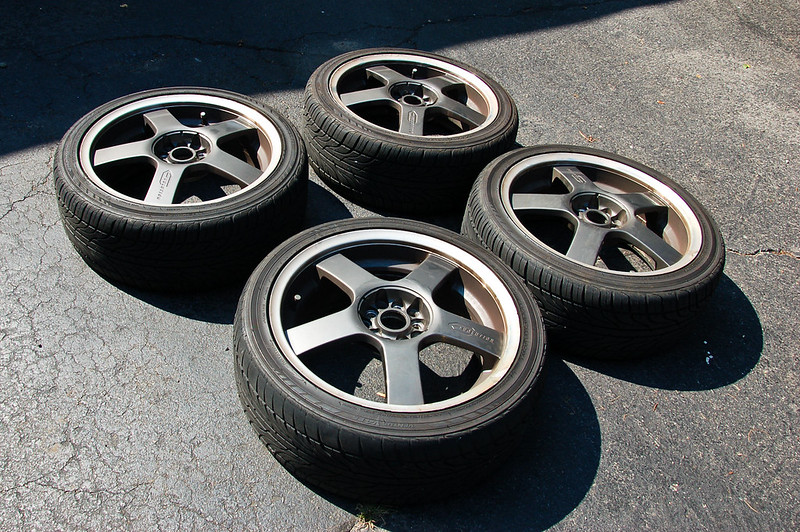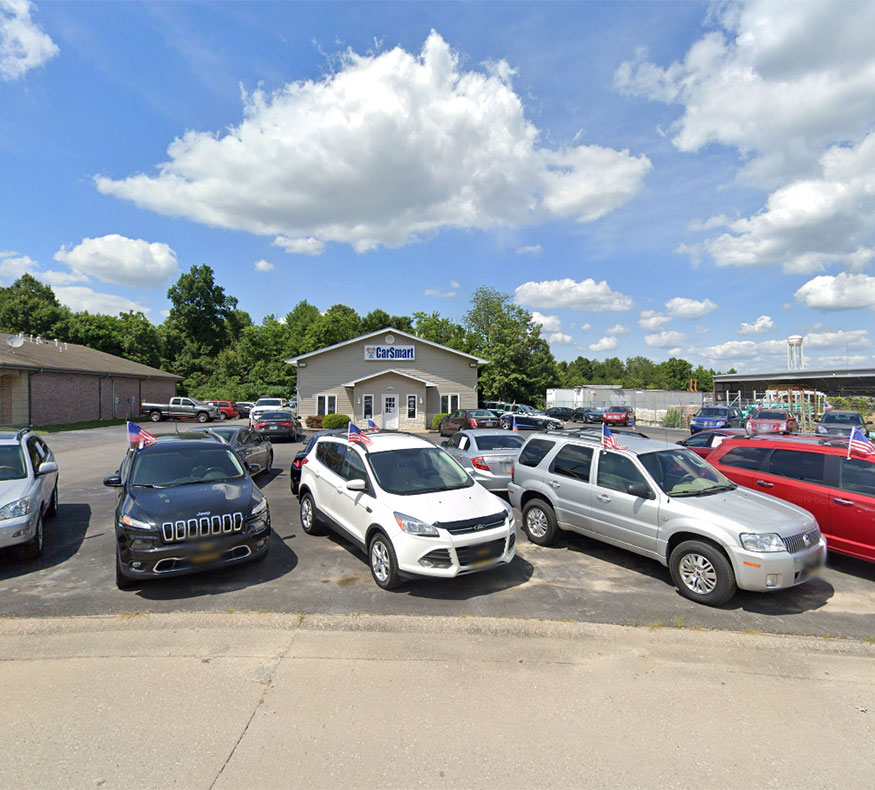When you're looking for a used car, there are many things you should consider, such as cost and mileage. While these are important to think about, you should also pay special attention to the car's tires. Tire quality and wear can affect the value of a used car. This means you could ask for a lower price for the vehicle if its tires aren't acceptable. To do this, you need to know what to look for when inspecting the car's tires. Let's discuss how tire quality and wear can impact the value of a used car.

Image via Flickr under CC BY 2.0 by Rich Moffitt
When purchasing a used car, it's important to consider its tires. Tires are your vehicle's point of contact with the road, and their quality can increase or decrease the vehicle's overall value. There are several factors that affect tire quality and wear, such as:
Tread Depth
One of the most important factors that affects tire quality is tread depth. Tread depth is the vertical measurement of how much rubber there is between the top of the tire's tread and the bottom of the tire's deepest groove. New tires start with tread depths between 10/32 and 11/32. As you drive a car, the rubber wears down, which decreases the tread depth. Tread gives your tires traction, which is beneficial for driving in snow or rain.
When looking at used cars, examine their tread depth. Keep in mind that the minimum legal limit is 2/32. Tires with a low enough tread need to be replaced, which is why you can often negotiate a lower price for the car. You can measure tread depth with a penny or a gauge purchased from an auto parts shop.
Uneven Wear
The longer a set of tires has been used, the more wear they develop. This wear can be uneven across a tire's surface and can be due to factors such as improper alignment, worn-out suspensions, or under- and over-inflation. Driving on uneven tire wear can decrease your safety and performance and reduce the life of your tires. If a car has uneven tire wear, it can lower the car's overall value.
Before you purchase a used car, check for uneven tire wear. You can do this by feeling each tire to identify irregularities. If you find uneven wear on one tire, it's likely that the other tires will have the same type of wear. If you identify uneven wear, this may be grounds for establishing a lower asking price.
Tire Size and Types
Another factor that affects the value of a used car is its tire sizes and types. When buying a used car, it's essential to make sure each tire is the same. Look for the sticker in the driver's side door that provides the vehicle's standard tire size.
If all tires are the same size but the tread patterns vary, the vehicle's performance and safety can be compromised. The varied tires may signal other faults in the car, such as an alignment issue, or show neglected maintenance. A mismatch in the vehicle's tire sizes is a red flag. If the vehicle's tires are too large or small for the vehicle, there may be operational or safety issues.
Age of Tires
When purchasing a used car, you should also consider the tires' age. Older tires may decrease the value of the car, while newer tires can add value. Tires wear over time, which can cause cracks or bulges. If you notice these signs on the vehicle's tires, you can often negotiate a lower price because you'll have to replace the vehicle's tires soon. However, if the tires are new, the seller may expect you to pay more.
Most car manufacturers recommend you replace your car's tires after six years of usage. You can determine how old the tires are by looking at their code. Check the sidewall of the tire and look for a code that starts with "DOT." Once you locate it, find the last four digits of the code. These tell you the week and year that the manufacturers made the tires. For example, if the digits are "1021," then the tires were made in the tenth week of 2021.
Condition of Tires
Finally, check the overall condition of the tire. Even if the tires are relatively new, they could still be in bad condition. This simply depends on how much the previous owner drove the car and how well they took care of it. Besides checking for the tread depth and wear, look for any visible damage on the tires. Look for cracks between the grooves or bulges in the tires' sidewalls. You can also check for embedded objects, such as nails or stones, in each tire. If the tires are in poor condition, you may be able to ask for a price adjustment on the vehicle.
Cost of New Tires
When looking for a used vehicle, it's helpful to be aware of the cost of new tires. If the tires need to be replaced on the car, you can refer to the price of new tires when asking for a lower price. This can help you ask for a reasonable price that accurately reflects how much the tires cost.
That said, it can be difficult to determine the exact cost of new tires. The brand, quality, size, and type of tire affect how much it may cost. You can always go to a tire shop and ask for a quote for new tires on the type of car you're thinking of buying. Generally, a single tire can cost around $100 for cars, $175 for SUVs, and around $200 for trucks.
Tire quality can affect how much you spend on a used vehicle. Knowing what factors influence tire quality can help you determine if a car's tires are in good shape. If you have any questions about buying a used car, please contact our team here at CarSmart of Farmington. We also make it easy for you to get pre-approved regardless of your credit history so you can drive off our lot with the best car for you as soon as possible.




